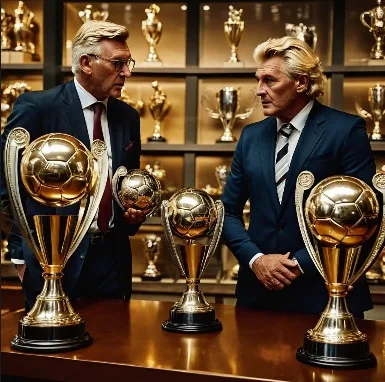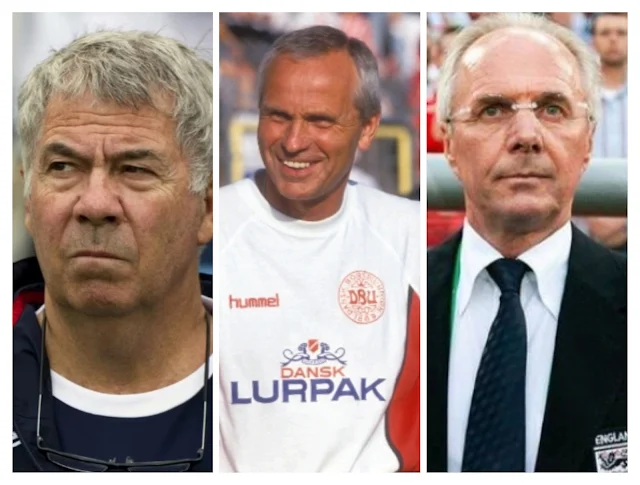A few notable names deserve to be
recognized as the best Nordic football managers in history, despite their lack
of fortune, either at the club or national team.
Northern Europe has been somewhat
underappreciated in football. Despite reaching the final of the 1958 FIFA World
Cup and winning the EURO 1992 trophy, the Nordic sides are none but simply the
dark horse. Such perspective appears to impact the managers’ reputation. Only
very few of them are well-known outside the region.
Nevertheless, things might change
in the near future. Bayern Munich, which currently is undergoing crisis, is touted to appoint Ole Solksjaer to be Thomas Tuchel’s successor till the end of the season.
Should he be officially named to lead Die Roten, the former Manchester United
boss and supersub during his playing years will be the first Scandinavian manager
to have been at the helm of two European elites.
Solskjaer’s stint in Old Trafford
might have been trophyless but his ability to inspire Harry Maguire and Co to
bounce back after disappointing campaign appears to tick the boxes in Bayern’s
eyes, at least temporarily. During his reign, United was able to become the
finalist in Europa League as well as became title contender in the Premier
League before finishing second in the 2020/21 season. Here are the best Nordic
managers from each three major nations in region, Norway, Denmark and Sweden.
Egil Olsen (Norway)
His name was probably unpopular
in England due to his team’s victory over England in 1994 FIFA World Cup
qualifying, which cost the Three Lions’ chance to qualify to the final round,
and his dismal results in Wimbledon leading to the downfall of the club.
Nonetheless, he remains the only manager who has taken Norway to a major international
tournament twice. Drillo, his nickname, did it in the 1990s, when his team did
not have the luxury of top players, unlike today. One may argue that Ole
Solskjaer was in his squad but the former Manchester United man was not his
first choice upfront.
Norway qualified to 1994 and 1998
FIFA World Cup during his first spell within 1990-1998. They even managed to
defeat the defending champion, Brasil in the latter edition and advanced to the
round of 16. His football philosophy, which relied on 4-5-1 formation and
forward-on-the-flank, laid the foundation for Norway’s EURO debut in 2000,
their last appearance in major competition up to this day. Such concept was
unpopular in the era when 4-4-2 formation was the king, especially in England.
No wonder that Tore Andre Flo was his favorite over the classic number 9, Ole
Solskjaer.
In his second spell (2009-2013),
Drillo guided them to sit on 11th place in FIFA Ranking, which is
their highest to date ever since being on the second place in October 1993, also during Drillo's tenure. Unfortunately, John Carew and his team did not qualify
for the 2010 FIFA World Cup or the 2012 EURO.
Honorable mention:
|
|
Notable achievements |
|
Nils Arne Eggen |
14 Norwegian league titles Round of 8 Champions League in 1997 (Rosenborg) |
|
Age Hareide |
Norwegian league title 2003 (Rosenborg) 2 Norwegian Cups (Molde & Rosenborg) 2 Swedish league titles (Helsingborgs
& Malmö FF) Swedish Cup 1998 (Helsingborgs) Danish league title 2002 (Brondby) |
Richard Moeller Nielsen (Denmark)
He was probably one of the most unpopular and underrated
great managers in history. Throughout his managerial career until his
death, he was frequently seconded and looked down upon, despite winning his
country's only major international trophy. Richard Moller Nielsen's outstanding
work was only fully appreciated after his departure.
Nielsen had won three domestic titles for Odense BK before
joining the national team as Sepp Piontek's assistant manager from 1987 to
1990. He previously served as Denmark's U21 head coach. In 1990, DBU initially snubbed him to fill in the vacant post after Piontek left. They were eyeing foreign managers with seven
candidates on the list. Yet, none was interested in leading Michael Laudrup and
Co after the debacle they made while contacting their top target, Horst
Wohlers. Nielsen was finally named the head coach.
His tenure was full of challenge at first due to the conflict
with the key players such as Laudrup brothers, Michael & Brian, plus Jan
Molby. His defensive approach and reliance on teamwork rather than
individual talent resulted in a schism in the locker room. The Laudrup brothers
refused the international call-up and even attempted to remove their own boss before
DBU finally backed Nielsen,
especially after their failure to qualify in EURO 1992. The younger Laudrup,
Brian, eventually returned from international retirement prior to the
tournament as Denmark was invited to replace Yugoslavia, which was torn apart
by a civil war. On the other hand, the older Laudrup did not join the squad.
The rest is history as he led the Danish Dynamite to stomp
France, Netherlands and Germany to lift the trophy. Nielsen also guided them to
win 1995 Confederation Cup by beating Argentina in the final and qualify in
EURO 1996. He resigned after his team failed to progress from the group stage
despite having both Laudrup brothers in the squad.
Honorable mention:
|
|
Notable achievements |
|
Morten Olsen |
2 Danish league titles (Brondby) Dutch league title and KNVB Cup (Ajax) Round of 8 in EURO 2004 (Denmark) |
|
Kasper Hjulmand |
2 Danish league titles (Lyngby and Nordsjælland) Semifinal in EURO 2020 (Denmark) |
He is undoubtedly the most
successful Nordic managers in history. Erikson has won numerous trophies,
including continental titles. Ironically, he has never had the opportunity to
be a head coach in his own country, but has been named manager of four national
teams: England, Mexico, Ivory Coast, and Philippines. However, none of his
international stints resulted in trophies. His team's best performance was
reaching the quarterfinals with the Three Lions in three consecutive major tournaments:
the 2002 and 2006 FIFA World Cups, as well as EURO 2004.
Erikson gained better results at
the club levels. The 76-year-old gaffer clinched three league titles with
Benfica, plus UCL finalist in 1990. He also won four Coppa Italia titles, two
of which were for Lazio whereas the other two with AS Roma and Sampdoria. In
addition, he brought Lazio to win Serie A in 2000, plus delivered three
continental silverwares, UEFA Cup in 1982 for IFK Göteborg, plus Winners Cup and UEFA Super Cup 1999 for Lazio. No other Nordic managers has lifted as many trophies as him
so far.
Honorable mention:
|
|
Notable achievements |
|
Tommy Svensson |
3 Swedish league titles Swedish Cup 1977 (Öster) Semifinal in EURO 1992 Third place in 1994 FIFA World Cup (Sweden) |
|
Gunder Bengtsson |
2 Swedish league titles UEFA Cup 1987 2 Norwegian league titles (Vålerenga) 2 Greek Cups (Panathinaikos) |



Comments
Post a Comment